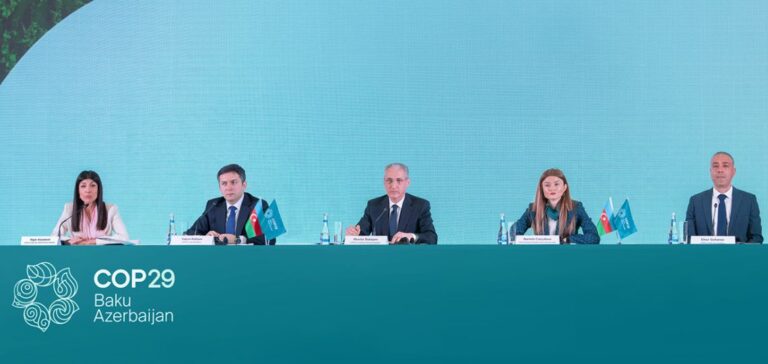The 29th United Nations Climate Change Conference (COP29) will be held in Baku from November 11 to 22, with the main aim of setting new targets for climate finance. Mukhtar Babayev, President of COP29 in Azerbaijan, expressed his concern at the lack of progress in the negotiations, calling on nations to accelerate and move beyond their initial positions to reach a consensus.
Background and objectives
After COP28 in Dubai, which focused on the end of fossil fuels, COP29 will concentrate on climate finance. The current target of $100 billion per year, which will only be reached in 2022, is deemed insufficient by developing countries, who are calling for a significant increase in contributions. India has proposed an ambitious target of 1,000 billion dollars, a demand that is meeting with resistance from Western donor countries and Japan, who are insisting that China and the Gulf States should also contribute.
Priorities of the Azerbaijani Presidency
Azerbaijan’s COP29 presidency is focusing on two pillars: “accelerating ambition” and “activating action”. The first is to encourage a more rapid reduction in carbon emissions, while the second aims to unlock the necessary financing for developing countries. However, Azerbaijan’s position on the use of fossil fuels as “transition energy” remains a point of contention.
Proposed initiatives and measures
To overcome the current stalemate, the COP29 presidency organized a retreat for chief negotiators at Chemakha, and appointed two ministerial facilitators: Dan Jørgensen of Denmark and Yasmine Fouad of Egypt. Despite these initiatives, Babaïev stresses that the complex issues of climate finance require high-level political involvement, already on the agenda of forums such as the G7 and G20.
The outcome of the discussions at COP29 will be decisive in establishing a new dynamic in global climate finance commitments, strengthening cooperation between the nations of the North and South for a more sustainable future.






















